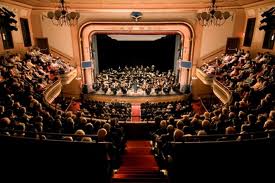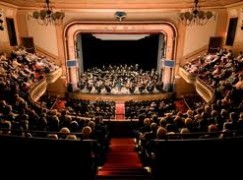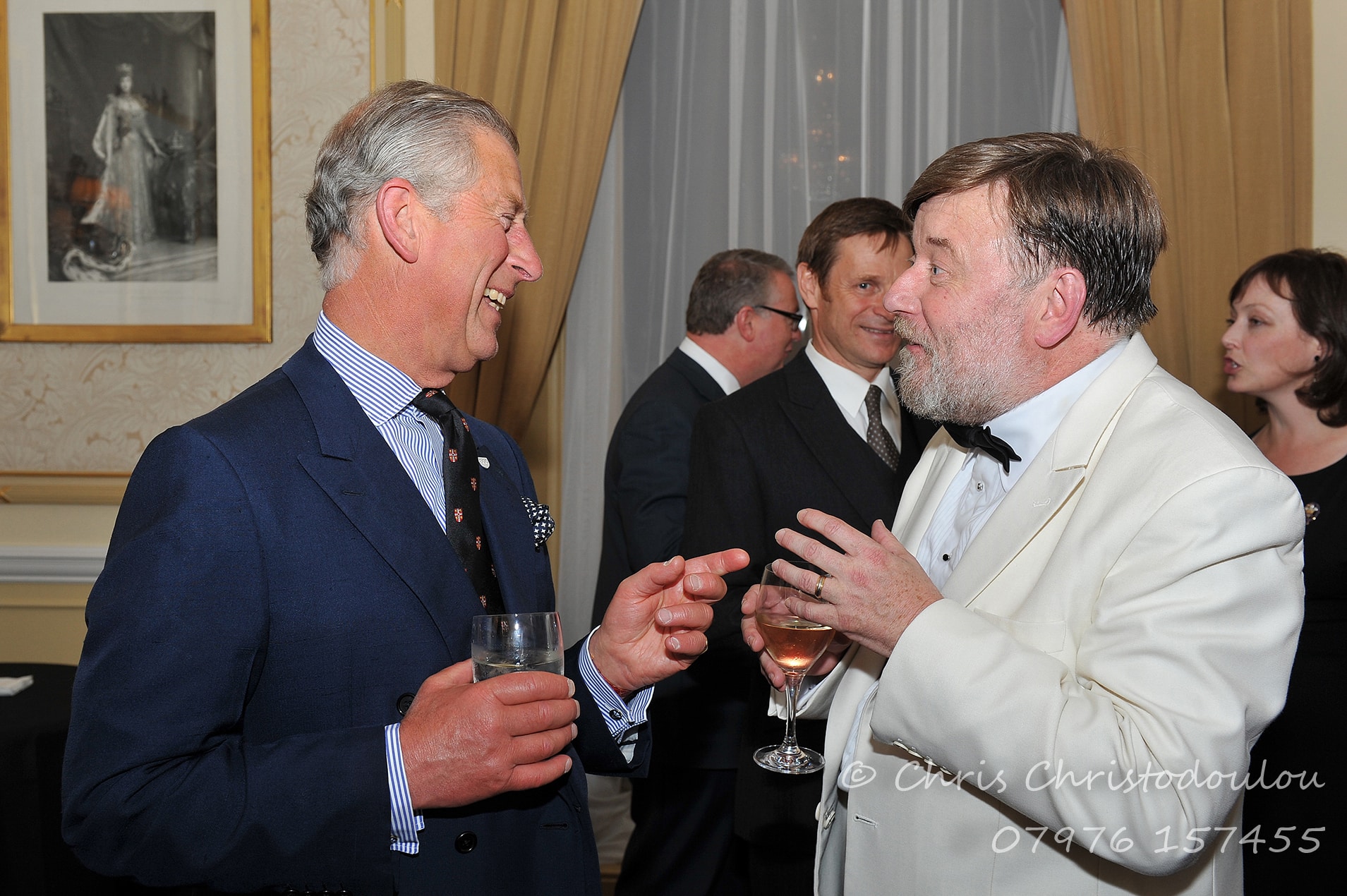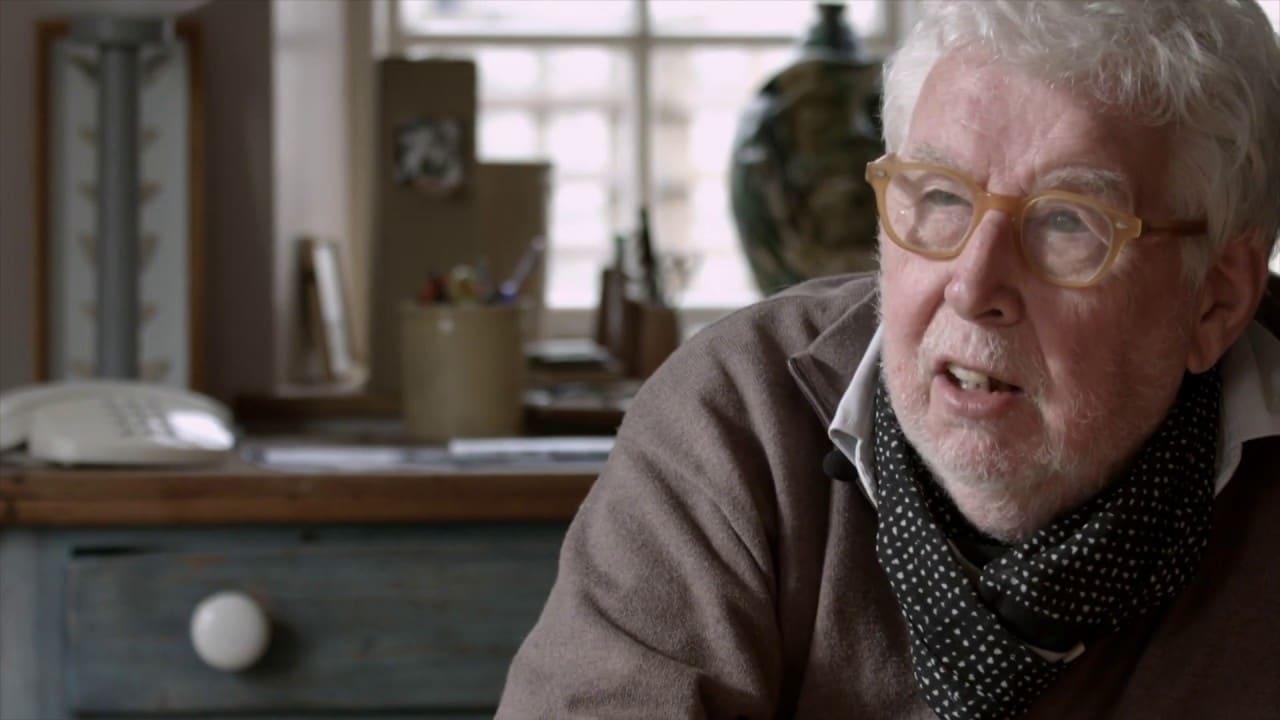Is the symphony now a thing of the past?
mainFrom the Lebrecht Album of the Week:
When Christopher Rouse died ten months ago, aged 70, it seemed to spell the end of a line of American composers who placed the symphony at the heart of their art. And not just Americans.
Apart from Kalevi Aho and Leif Segerstam in Finland, David Matthews and Philip Sawyers in the UK and one or two Russians and Germans, composers seem to have given up on the symphony in the 21st century. The assumption is that audiences have lost interest. Is that really the case? In these COVID times, we have no way of judging except on record.…
Read on here.
And here.
And here (in Czech).
And here (with an extra Spanish angle)







The 5th symphony is a beautiful piece and it is good that you have highlighted it here.
In general the music-loving public seems to have relatively little taste for this form of music from contemporary composers and it seems that very few of today’s composers have any interest in pursuing this route thus the demise of the symphony becomes a self-fulfilling prophesy. Nevertheless although not principally a symphonic composer I am close to completing my own attempt at this genre though I intend to garnish it with still and movie images and publish it online rather than try to get it performed publicly as that is probably the only way it will ever see the light of day.
If anyone’s interested here’s a link the the (short) third movement:
https://www.youtube.com/watch?v=mB63YGmDTa0
Rather poignant, isn’t it, that this symphony was recorded by the Nashville Symphony, which may also be extinct. Modern audiences don’t take to modern symphonies because they don’t sound like the old symphonies. Dvorak, Tchaikovsky, Brahms, Mahler, Beethoven….the audiences like those tunes! They have no idea about symphonic development or anything else, and boy, in modern symphonies following those ideas can be very, very difficult. There are others still writing symphonies (eg Daniel Asia) but they get no attention whatsoever – not as long as the Tchaik 6 is out there.
It’s a shame if the Nashville gang goes under, as they were once a fine orchestra. I have a terrific recording of Ives’ 2nd Symphony by them. I will add, however, that I was shocked when I saw their season programming last year (as I mulled a trip to the Music City). It was almost all pops.
I would say yes indeed.
Like the opera art, writing a symphony was once an Olympic attempt, a kind of ritualistic “Manhood test” among young composers that aspired for recognition and an entrance into the Pantheon of greatness.
Writing 15 minutes of unorganised noise for 100 dogs barking at each other, or like Barbirolli would put it, “Three farts and raspberry”, all in the name of the Symphony is a demeanour of the art form’s real importance.
The days the Symphonies of Beethoven and Mahler challenged the players and the audiences, changed the world and developed symphonism and the very art form are gone since propably Shostakovich.
The 350+ “orchestral diaries” of noise-printers whom I won’t have to mention devaluate the very purpose of the Symphony and its fundamental historic essence
It’s true, isn’t it?
Hardly anyone walks out saying “oh I want to hear that piece again!”
But at one time they did walk out saying that upon hearing Haydn, Mozart, Beethoven, Schubert, Schumann, Brahms, Tchaikovsky, Dvorak, Strauss, Prokofiev, Bruckner, and Mahler.
Anon: Right so, but of those you mention, the most challenging were Beethoven, Bruckner and Mahler (and perhaps Prokofiev, depending on Khrennikov’s mood!)
The point is that playing standards were raised with challenging works of genius, and with that even the expectations of the audience would rise too.
Neither the Eroica nor the Bruckner 4th (in the original version) made much sense in their times. And they can’t have sounded too well either dur to a shortage of rehearsals.
Actually, your opinion is contradicted by the reviews that works by those composers often received.
If you have not yet read “Lexicon of Musical Invective” by Nicolas Slonimsky, I recommend it heartily.
My copy is not in front of me, or else I would quote from it. Perhaps later.
It may not be clear, but my previous post was directed primarily at “Anon.”
Since I am in front of my copy of the Lexicon, here are a few quotes:
“Beethoven’s Second Symphony is a crass monster, a hideously writhing wounded dragon, that refuses to expire, and though bleeding in the Finale, furiously beats about with its tail erect.” (Zeitung für die Elegente Welt, Vienna, May, 1804)
“Like other so-called innovators, Dr. Schumann is essentially as trivial in idea and as poor in resource as the most intolerable of the ‘Philistines.'” (The Athenaeum, London, June 28, 1856)
“Brahms’ Requiem has not the true funeral relish: it is so execrably and ponderously dull that the very flattest of funerals would seem like a ballet, or at least a danse macabre, after it.” (George Bernard Shaw, The World, November 9, 1892)
“We recoil in horror before this rotting odor which rushes into our nostrils from the disharmonies of this putrefactive counterpoint. His imagination is so incurably sick and warped that anything like regularity in chord progressions and period structure simply do not exist for him. Bruckner composes like a drunkard!” (Gustav Dömpke, Wiener Allgemeine Zeitung, March 22nd, 1886)
(I’ll spare everyone the anti-Semitic reviews of composers such as Mahler.)
It’s always a pleasure to pull out the Lexicon. Thank you for an excuse to quote from it. 🙂
Hardly the end of the line. Avrohom Leichtling (student of Mennin and Persichetti) awaits your discovery. Do you know how difficult it is to get a symphony played?
Yes it is hard. But a lot of composers, and Dr. Leichtling among them, write some music that is so difficult, and demand such vast resources in terms of extra players and equipment, that it’s impractical to put them on.
True, that, but Leichtling’s scores demanding a large orchestra really isn’t the issue; it is the fecklessness and incurious nature of too many conductors (particularly American) that keep his and other worthy symphonies from finding their audience. The tradition is far from finished but I predict that things will become even more focused around risk-avoidance after this pandemic passes.
They said that of Berlioz as well. And Mahler…
Is it that composers have given up on the symphony?
Or is it that commissioners have given up on commissioning symphonies?
If composers are not commissioned to compose symphonies, how likely are they to write ones on their own initiative, and how likely are we ever to hear them?
Don’t forget Sir James MacMillan – two of my top CD purchases during lockdown have been his 4th (on Hyperion) and 5th (on Coro) symphonies.
Will have to check those out. I have only heard a short MacMillan chamber piece, “One,”
which is quite nice.
Chris Rouse was a very close friend (In 1976 he and I played timpani on The Rite of Spring with the Cornell University Symphony Orchestra). How he became an orchestral composer is both fascinating and simple. I suggest to all to watch “Rouse on Rouse” on Youtube to hear him tell his musical story. For me, the Flute Concerto is one of his best works, based on a truly horrific real story.
In my previous comment I should have said symphonic instead of orchestral. My bad.
There are a lot of factors going on:
– People -including folks on this blog – will say nobody wants to hear the senseless noise of modern composers, but these days audiences – and to some extent performers – are so wedded to the “I like what I know” mentality – that even composers who write utterly charming symphonies with great tunes are unlikely to be played, unless they already have a big name. If John Adams or John Williams were to write a “Symphony #1,” it would probably get a chance, but beyond them, who knows?
– A new symphony is a big investment; lots of time for the composer to write, lots of money for the orchestra to commission, and considerable costs to rehearse and perform, likely to be rewarded by a smaller audience, criticisms of the work. In short, higher costs, lower revenues, negative critical and audience response. Why bother? Just do Brahms 2 again.
– How many times do we hear conductors say that their own managements, or those of orchestras where they guest-conduct – resist their programming certain composers? Jiri Belohlavek supposedly had trouble getting American orchestras to let him play Martinu! It was considered so bold and adventurous for Alan Gilbert to perform/record the Nielsen symphonies/concertos with the Philharmonic, that it was promoted as “The Nielsen Project,” as though it were such a one-off, which ultimately it was. In the U.S. we hardly hear any English music aside from The Planets and Enigma Variations. Maybe the Elgar symphonies once in a blue moon.
I’d be interested to hear the experiences of some of the conductors who occasionally pop up on SD.
This is hardly the first time the symphony’s demise (or pending demise) has been proclaimed after all, Wagner thought so (he was wrong), and Bartok, for one example, decided that he had nothing to contribute to a form that was becoming antiquated. Ditto Ravel and Debussy…
Then someone comes along who shows that the form ain’t dead yet.
Indeed so, Peter – and if my memory serves me correctly, I believe that Wagner himself (who had written 1.5 virtually pre-pubescent symphonies) was, after Parsifal, contemplating another one just before his sudden death. If only we had a single-stave sketch of the first few bars – Anthony Payne might have provided us with a two-hour choral epic!)
You mention Debussy and interestingly, he too had attempted a symphony in B minor and the fragment exists in piano reduction; of course, he called La Mer ‘Symphonic Sketches’, perhaps to escape the attention of the latter-day Beckmessers who, had he called it a Symphony, might have trashed it on the grounds that the second theme was not in the dominant or there was some chord or another that was not in the manual of permitted musical progressions.
Regarding Bartok, he did at one time consider he had something to contribute to the genre; in 1902 he began a symphony in E flat major and the scherzo was recorded on an old Hungaroton LP – part of their complete Bartok edition. Furthermore, he left enough of it for it to be completed and it’s on YouTube – like the early ‘Kossuth’, which has survived complete, it is saturated with Straussian testosterone and with a few Mahlerian spooky moments but still a most creditable effort for a young man of 21. But among his mature works one could easily consider his Concerto for Orchestra as a five-movement symphony as it seems to tick all the boxes.
There are certain composers who, after their student days, seem to steer clear of genres which, they feel, are beyond their skills and ambitions or just not their shtick. There are no Bruckner or Brahms operas, no Chopin or Ravel masses, no Walton piano sonatas and there’s no Mahler chamber music (other than a fragmentary piano quartet written as a student that got no further than one completed lugubrious movement and a snatch of a second – and yes, he may have written one or two other student chamber works, now lost, but which might turn up some day, perhaps when a talented student writes them and releases them on social media as Mahler’s work).
To go slightly off-piste here (I’ll say why afterwards): I might also have gone as far as saying that there are no Mahler operas, but he did write an early one, Rubezahl, that is listed in Grove as lost, with the libretto in a private collection in the USA. But in the spring of 1997, Radio 3 broadcast the overture to this work, which had allegedly been found among the effects of some recently-deceased Czech friend of Mahler. I managed to get an off-air recording of this and it sounds like a dry run for the first movement of the first symphony. If NL moderates this contribution, and as his Mahlerian expertise is beyond dispute, I’d like to hear his verdict on this work – is it genuine or not? I’m ready to take it on the chin if it’s been proved a fake but with great disappointment as this must be one of the rarest recordings I have; probably a unique performance, with no further broadcasts and no recordings to my knowledge. I wonder too if any of you erudite contributors to this blog have ever come across that work.
To return to the piste – to say that any musical genre is ‘dead’ because certain major composers no longer attempt them is foolish. Examples of recently composed symphonies are mentioned in this thread and there are other composers, probably as yet unheard of, who are still writing them, and no doubt a handful of them will enter the pantheon given time. Someone quite well-known in the music world, seeking to prove that the symphony was dead, cited Gorecki’s hugely successful third symphony and his failure to follow it up with another in the intervening 33 years. Scarcely was the ink dry on this verdict when Gorecki’s fourth symphony appeared in 2010 – completed by his son as he had died that year short of completing the scoring. (I have never listened to it for medical reasons – its predecessor induced acute narcolepsy in no more than five minutes and I fear that if this was the composer’s intention and the fourth is a more potent work, the first bar might cause permanent cessation of respiration.)
As Mark Twain might have said ‘Reports of the symphony’s death are greatly exaggerated’.
Erkki-Sven Tüür is also a noteworthy contemporary symphonist
In the past three or four years I’ve made premiere CD recordings with orchestras in the UK, Spain, and Latvia of about half a dozen new British symphonies by composers such as Steve Elcock, David Hackbridge Johnson, Rodney Newton, and Rob Keeley, all of whom are alive and kicking, and all writing – in their various distinctive styles – accessible, engaging, and urgently communicative symphonic music of the greatest integrity. So while I’m not saying anything about the merits of these recordings, the fact that they exist at all might suggest that the symphony isn’t dead yet. I suppose, if you want to find evidence for something, it does depend a bit on where you look.
The last new symphony that made an impression on me was Samy Moussa’s 1st Symphony in 2017. Before that Éric Champagne’s 1st in 2014. I hope they write more.
Michael Daugherty’s Metropolis Symphony gets played quite a bit.
People are writing them but they are maybe not getting performed as often, or at the highest level, necessarily. Aside from those mentioned above there are plenty of contemporary symphonists out there: Christopher Gunning, Carl Vine, Matthew Taylor, Huw Watkins, John Kinsella, James MacMillan, Ross Edwards, Robin Holloway, Philip Glass, Steve Elcock, Frank Corcoran, Seoirse Bodley, David Hackbridge Johnson, Christopher Painter, Michael Nyman. I’m sure there are plenty more.
Stopped writing symphonies?
Kalevi Aho has written 17, and BIS have recorded most of them. Genius composer.
I am less familiar with Aho’s symphonies than I am with his concerti and wind quintets.
He is a fine composer, and a convivial conversationalist. His English is far better than my Finnish. 🙂
Per Nørgård has a brilliant cycle of eight so far (composed between 1953 and 2011), the first and eighth of which have been recorded by the Vienna Philharmonic. Particularly his third is a major work that I’d like to hear more often but the massive forces required (a large orchestra and two choirs) sadly make that a rare occasion.